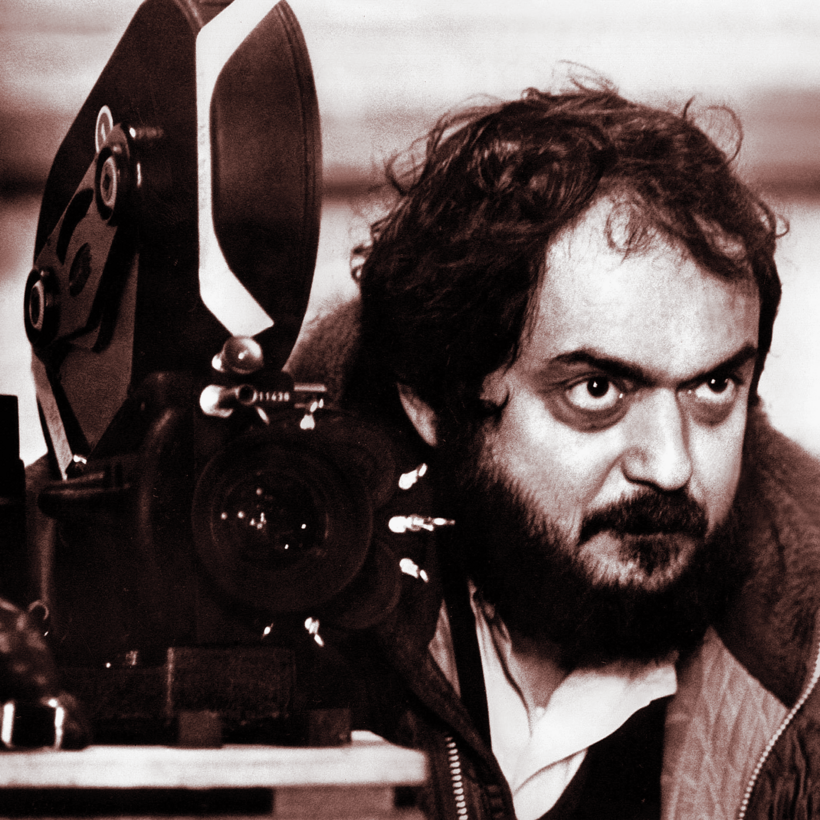Stanley Kubrick, the relentless perfectionist who directed some of cinema’s greatest classics, was so sensitive to criticism that, in 1970, he threatened legal action to block publication of a book which dared to discuss flaws in his films.
The director of Spartacus and 2001: A Space Odyssey warned the book’s author and publisher that he would fight “tooth and nail” and “use every legal means at his disposal” to prevent its publication – and he did.
Now, 25 years after his death, the book Kubrick did not want anyone to read is being published, more than half a century late.
The Magic Eye: The Cinema of Stanley Kubrick by Neil Hornick now has three prefaces reflecting its subject’s ruthlessness in trying to block publication and control his image.
Hornick, now 84, from London, said Kubrick’s legal threats had come as a shock: “I regard it as a painful episode.”
He had been commissioned to write the very first book on Kubrick by cinema specialist The Tantivy Press more than 50 years ago. Kubrick was initially helpful, sharing viewing prints of his films that were otherwise inaccessible.
But, after seeing a draft of the book, the filmmaker changed his mind and blocked its publication. He complained that the book had “a summary of the good things about [each] movie followed by a summary of the bad points, which, in [Kubrick’s] view, always outweigh the good on account of the overly emphatic way in which such criticisms are presented.”
Tantivy had signed an agreement with Kubrick stating that it would not publish anything “until such time as its entire contents have been approved in writing by me [Kubrick]”.
The Magic Eye has three prefaces reflecting its subject’s ruthlessness in trying to block publication and control his image.
Hornick said: “I understood his legal agreement with the publisher entitled him to ensure the book was factually correct. I didn’t expect the whole book to be rejected.”
Kubrick’s lawyers were clear: “If … any attempt were to be made by yourself or any other publisher to publish the existing manuscript without his approval our Client will have no alternative but to accept our advice to take all steps as are open to him to prevent such publication and to seek redress for damages suffered.”
Kubrick estimated that the “unacceptable” criticisms amounted to a third of the 70,000-word manuscript. But he never specified what had caused such offense and Hornick was bewildered as he believed the criticisms were not that extensive.
They appeared primarily in a chapter on Lolita, a 1962 adaptation of Vladimir Nabokov’s controversial novel about a man who becomes obsessed by a 12-year-old girl.
In the book, Hornick wrote: “There are good things in Lolita. But in too many respects it squanders, impoverishes and conventionalizes its source material, draining it of its complexity, nymphetry and eroticism.”
He said: “I found the film version largely a pointless betrayal of the original novel from which it was adapted. However, I expressed great admiration for most of his other films.” His book describes 2001 as “a magisterial achievement” and Kubrick’s 1957 First World War movie Paths of Glory as “a film of intoxicating visual sophistication”.
“I didn’t expect the whole book to be rejected.”
Kubrick never responded to his offer to revise substantial sections, “so long as the critical integrity of the book was not jeopardized”, Hornick had written to him. Instead, the filmmaker collaborated closely with his friend, the film critic Alexander Walker, on a book titled Stanley Kubrick Directs, published in 1972. “Who could blame me for not wanting to prolong the agony, giving up on the whole sorry imbroglio, and getting on with my own creative life?” he said.
Asked if he was bitter that Kubrick’s lawyers blocked publication of his book, Hornick said: “Perhaps at the time, yes, and highly frustrated too, but not for long, as I was very busy with other projects.”
Filippo Ulivieri, a leading Kubrick scholar, said: “It’s quite shocking to read the correspondence between Kubrick’s lawyers and Neil’s publisher … Kubrick wanted a book that praised his films and Neil’s book was not like that. His films up to that point were reviewed positively – although some critics, especially in New York, had been critical. So he needed a book that was completely positive.
“With its down to earth, craft-oriented analysis of the films, would [Hornick’s] book have chipped away at the myth of the all-powerful, never-failing director?”
Ulivieri added that Hornick’s book “offers a very precise, unbiased view of Kubrick’s films”, unlike so many others. “It’s very difficult to find even a single flaw pointed out in the Kubrick literature.”
The Magic Eye could have remained unread. However Hornick was approached by New York-based Sticking Place Books.
Paul Cronin, its British publisher, said: “His reaction to The Magic Eye showed Kubrick’s image-control obsessions taken to extremes. He didn’t just make edits – he erased the entire project. Now, almost 55 years after Neil Hornick completed it, readers can finally make their own judgments about the book Kubrick was so implacably determined to keep from public view.”
Hornick writes in his preface: “Given the sad fate of my book, I thought I’d finished with Kubrick. But, as I’m sure others before and after me have also discovered, one is never really finished with him. If you’ve once been bitten – or is the word “smitten”? – by the Kubrick bug, it kind of gets into your bloodstream and stays with you for life … I remain interested in him to this day.”
Dalya Alberge is a London-based freelance journalist. Previously, she spent 14 years as the arts correspondent at The Times of London

